Ukrainian general's assessment of the situation on the ground, Israel's discovery of a large tunnel network in the northern Gaza Strip... are some notable international news in the past 24 hours.
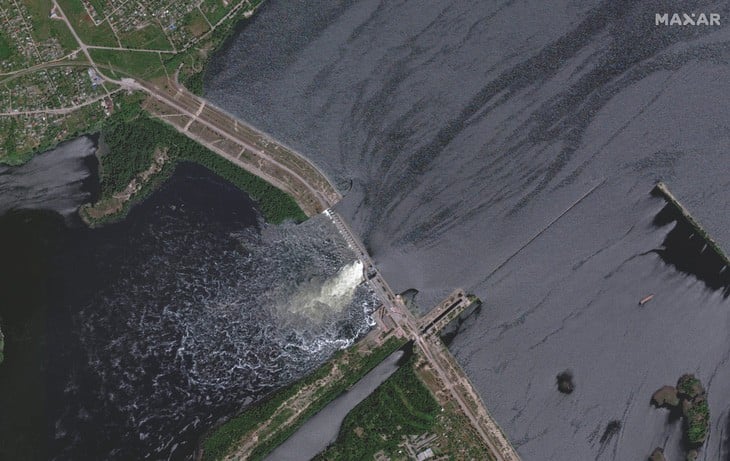 |
| The Kakhovka hydroelectric dam collapsed in June. (Source: Maxar) |
The World & Vietnam Newspaper highlights some of the day's international news highlights.
* Mr. Medvedev affirmed Russia's victory over Ukraine: On December 17, speaking at the congress of the ruling United Russia party, Deputy Chairman of the Russian Security Council Dmitry Medvedev recalled the words of Soviet Marshal Konstantin Rokossovsky about the Great Patriotic War. He emphasized that, just as the whole people had won a great victory then, the current campaign will also be a common victory for the whole country. Noting that Russian society had shown resilience and unity against its opponents, the leader affirmed: "We will achieve a common victory of the whole people in this struggle."
Recently, Mr. Medvedev declared that the West has actually entered a military conflict with Russia. At the same time, he emphasized that contemporary generations are living in an era of significant and drastic changes. (TASS)
* Ukraine: The situation on the ground has not reached a stalemate : On December 18, speaking to RBC (Ukraine), when asked whether the situation on the ground had reached a stalemate, Commander-in-Chief of the Armed Forces of Ukraine, General Valery Zaluzhniy replied: "No". However, he refused to comment on the possibility of Ukraine continuing its counter-offensive in the winter, citing the sensitivity of the issue.
Meanwhile, in response to Reuters , Brigadier General Oleksandr Tarnavskyi said that Ukrainian forces are facing a shortage of artillery shells and have had to reduce military operations due to a lack of foreign support: "There are problems with ammunition, especially post-Soviet (ammunition) - that is 122 mm, 152 mm. These problems exist on the entire front line." According to him, this is a "very big problem" and the trend of reducing foreign military aid is affecting the situation. (Reuters)
| RELATED NEWS | |
 | President Putin: Russia will not attack NATO if it wins Ukraine |
* Israeli government approves hostage negotiations : On December 17, Channel12 (Israel) quoted sources as saying that the Israeli leadership approved negotiations between Mossad Director David Barnea and Qatar and Egypt on the release of more hostages held in the Gaza Strip. Accordingly, he outlined a possible agreement to continue releasing hostages before the senior leadership. The Mossad Director was given the "green light" to discuss details with Qatar and Egypt regarding this scenario, taking into account Israel's request.
The official will travel to Europe to meet with Qatari Prime Minister Mohammed bin Abdulrahman Al-Thani about a potential hostage deal with Hamas, accompanied by Major General (retired) Nitzan Alon, who is currently leading intelligence efforts to track down hostages kidnapped in the Gaza Strip.
Earlier, two Egyptian security sources said that both Israel and the Islamist Hamas movement were ready to implement a new ceasefire and release hostages, although the two sides still disagreed on how to implement the agreement. (Sputnik)
* Israel discovers giant tunnel network in northern Gaza Strip : On December 17, the Israel Defense Forces (IDF) said it had discovered the largest ever network of Hamas attack tunnels near the Erez border crossing in the northern Gaza Strip. The tunnel is 4km long, 50m deep underground and some areas are wide enough for vehicles to pass through, but do not enter Israeli territory. One of the branches that runs close to Israel is only 400m from the Erez crossing.
According to the IDF, the elite Yahalom unit of the Engineering Corps and the Northern Brigade of the Gaza Division used advanced technology and artificial intelligence to explore and detect the “strategic” tunnel network, as well as conduct sweeps to eliminate potential threats within the tunnel system.
The IDF has seized numerous weapons from the tunnels. It is estimated that Hamas has invested millions of dollars in building underground tunnel networks in Gaza. To date, the IDF has discovered more than 800 tunnels and destroyed about 500 of them. The IDF has also begun testing the pumping of seawater into some of the tunnels in an attempt to neutralize Hamas gunmen’s hideouts. (Times of Israel)
* US military urges Israel to scale back Gaza offensive : US media reported on December 17 that Defense Secretary Lloyd Austin and Chairman of the Joint Chiefs of Staff Charles Q. Brown are on their way to Tel Aviv. One goal of the visit is to convince Israeli Prime Minister Benjamin Netanyahu of the need to shift from large-scale military operations targeting Hamas forces in Gaza to a more limited military campaign.
The Biden administration has repeatedly warned Israel about the widespread bombing, which has killed 18,700 Palestinians and displaced millions, negatively affecting international support for Israel in its fight against Hamas. A few days ago, during a visit to Tel Aviv, US National Security Adviser Jake Sullivan urged Prime Minister Netanyahu to order the Israeli military to shift to more effective tactical offensive operations, instead of the widespread bombardment of recent weeks.
In response, Defense Minister Yoav Gallant affirmed that Israeli troops will maintain large-scale offensive operations against the Hamas Islamist movement in the coming months. This raises questions about President Joe Biden's real goal when sending two top military officials back to Israel. (TTXVN)
| RELATED NEWS | |
 | Israel - Hamas conflict: A French diplomat was killed, what are the conditions for negotiating the release of the hostages? |
Southeast Asia
* Turkey delivers T-129 ATAK helicopters to the Philippines : On December 18, the Patronlar Dunyasi (Turkey) newspaper reported that Ankara has completed the delivery of a batch of T-129 ATAK attack helicopters to the Philippines ahead of schedule, despite the deal being repeatedly delayed due to US restrictions on engine exports.
Previously, the delivery of six T-129 ATAK helicopters was scheduled to be completed in 2024, but Türkiye completed the work by the end of 2023. The Philippines will hold a special presentation of the new helicopter squadron on December 20.
Also according to the Turkish newspaper, the Philippine Air Force's technical team selected the T-129 ATAK for its attack helicopter program in late 2018. Since then, the deal has been delayed due to export restrictions on the US LHTEC CTS800-400A engine for the T-129 ATAK. (Sputnik)
* Leaders of Japan, Cambodia pledge to strengthen security cooperation : On December 18, one day after the Japan-ASEAN Summit to celebrate 50 years of friendship and cooperation, Japanese Prime Minister Kishida Fumio and his Cambodian counterpart Hun Manet had a bilateral meeting in Tokyo.
At this meeting, the Japanese Foreign Ministry said the two leaders confirmed that Tokyo and Phnom Penh will initiate a dialogue mechanism at the deputy defense minister level.
Kishida said bilateral ties have expanded to various areas, including a mine clearance project for Ukraine. Manet, on his first trip to Japan since taking office in August, pledged to work with Kishida for peace and stability in the region. (Kyodo)
| RELATED NEWS | |
 | Thai MP proposes resolution of Preah Vihear temple dispute with Cambodia |
Northeast Asia
* Chinese ships enter waters near disputed islands with Japan : On December 18, the Chinese Coast Guard confirmed that a group of Chinese ships entered waters around the Diaoyu/Senkaku Islands during the day.
The islands are a small group of islands located about 400km west of the main island of Okinawa, Japan. Currently, the Diaoyu/Senkaku islands are controlled by Japan. However, China also claims sovereignty and regularly sends ships or planes to the area. The two sides have confronted each other in the waters, often deploying patrol boats and urging the other side to leave the area. The sovereignty dispute over the islands has strained Japan-China relations for years. (Reuters)
* China affirms strategic importance of relationship with North Korea : On December 18, the Chinese Foreign Ministry said that Chinese Foreign Minister Wang Yi and his North Korean counterpart Pak Myong Ho met in Beijing. The two sides expressed support and firm confidence in bilateral relations,
For his part, Mr. Wang Yi emphasized: "In the face of the volatile international situation, China and North Korea have always firmly supported and trusted each other, demonstrating the strategic importance of China-North Korea friendly cooperation." (AFP)
* Korea and China discuss how to operate a "hotline" on supply chains : On December 18, the Ministry of Trade, Industry and Energy of Korea (MOTIE) said that the country and China have discussed in detail how to operate a bilateral "hotline" to maintain close coordination on supply chain issues.
Specifically, at the expert-level negotiations in Seoul, the two sides discussed in detail the hotline as well as other issues surrounding the supply chain. Previously, the two countries' trade ministers reached a basic consensus when meeting in Beijing.
South Korea is currently working to stabilize supplies of the key imported material. Meanwhile, China recently suspended urea exports due to tight supplies for domestic consumption. The move has raised concerns about another supply chain crisis, similar to when South Korea suffered a major urea supply crunch in 2021 after China imposed export restrictions. (Yonhap)
| RELATED NEWS | |
 | North Korea takes action in response to South Korea's tough warning, Japanese Prime Minister calls emergency meeting |
* Russia can rebuild the Kakhovka hydroelectric dam : On December 18, in an interview with RIA Novosti (Russia), the Russian-appointed Governor of Kherson Province, Vladimir Saldo, said that the dam of the Kakhovka Hydroelectric Plant can be restored thanks to preserved archives and modern technology: “The design documents of the Kakhovka dam are mostly kept in the archives of institutes in Moscow … it is possible to start from there and, based on modern conditions, build the Kakhovka dam and all the structures on it.”
Saldo said the dam could be restored faster than in Soviet times thanks to existing technologies. First, geodetic measurements, studies and technical inspections of the structures preserved there would need to be carried out - only then could the design work begin. Earlier, on the night of June 6, the Kakhovka hydroelectric power plant in the Kherson region was partially destroyed. The Dnieper River overflowed its banks, flooding residential areas on both banks. Moscow and Kiev have accused each other of deliberately destroying the dam. (Reuters)
* Russia welcomes Serbia's ruling party's victory: Kremlin spokesman Dmitry Peskov told reporters on December 18 that he welcomed the victory of President Aleksandar Vucic's Serbian Progressive Party (SNS) in the Balkan country's parliamentary elections. "We welcome this achievement of Mr. Vucic," he said, expressing hope that the result will lead to "further strengthening of friendship" between the two countries. Mr. Peskov also called Serbia a "brotherly" country.
On December 17, Mr Vucic declared the SNS party the winner of the election, while the official results are expected to be announced on the evening of December 18. Serbia and Russia have historically had close ties and Belgrade has not joined international sanctions against Moscow over its military campaign in Ukraine. (AFP)
* EU may strip Hungary of voting rights to reach agreement to support Ukraine : On December 17, the Financial Times (UK) quoted European diplomatic sources as saying that the European Union (EU) could apply Article 7 of the 2007 Treaty, allowing it to strip a country of its voting rights for violating European law. This process could be blocked by any other EU member. However, after the recent election in Poland, there is “no guarantor” for Hungary in the EU.
Some members of the community, however, remain wary of the idea of imposing restrictions on Budapest. Instead, they intend to demonstrate to Hungarian Prime Minister Viktor Orban the “real cost” of the country’s isolation within the EU, in order to force Hungary to change its stance on allocating funds to Ukraine. If this tactic does not work, the 26-nation bloc could sign an agreement to support Kiev without Hungary, the newspaper writes. However, this would take more time and “would only be a temporary solution.”
On December 15, Orban said that Budapest does not intend to support providing financial assistance to Ukraine from the EU budget. He confirmed that at the EU summit in Brussels, he blocked amendments to the community budget that would allocate 50 billion euros to Ukraine for 2024-2027. (Sputnik)
| RELATED NEWS | |
 | EU may strip Hungary of voting rights, Ukraine hopeful on 'long and very tiring road' |
* Israeli Defense Minister warns Hezbollah : On December 17, visiting soldiers along the Israel-Lebanon border, Israeli Defense Minister Yoav Gallant once again warned Hezbollah of the “heavy price” it would pay after a series of attacks by the movement on the IDF in recent days. He declared: “What we are doing in Gaza, we can do in Beirut. If we are drawn into a violent conflict, Hezbollah will pay a heavy price.” (Al-Jaazera)
Source




![[Photo] Prime Minister Pham Minh Chinh starts construction of vital highway through Thai Binh and Nam Dinh](https://vphoto.vietnam.vn/thumb/1200x675/vietnam/resource/IMAGE/2025/5/12/52d98584ccea4c8dbf7c7f7484433af5)

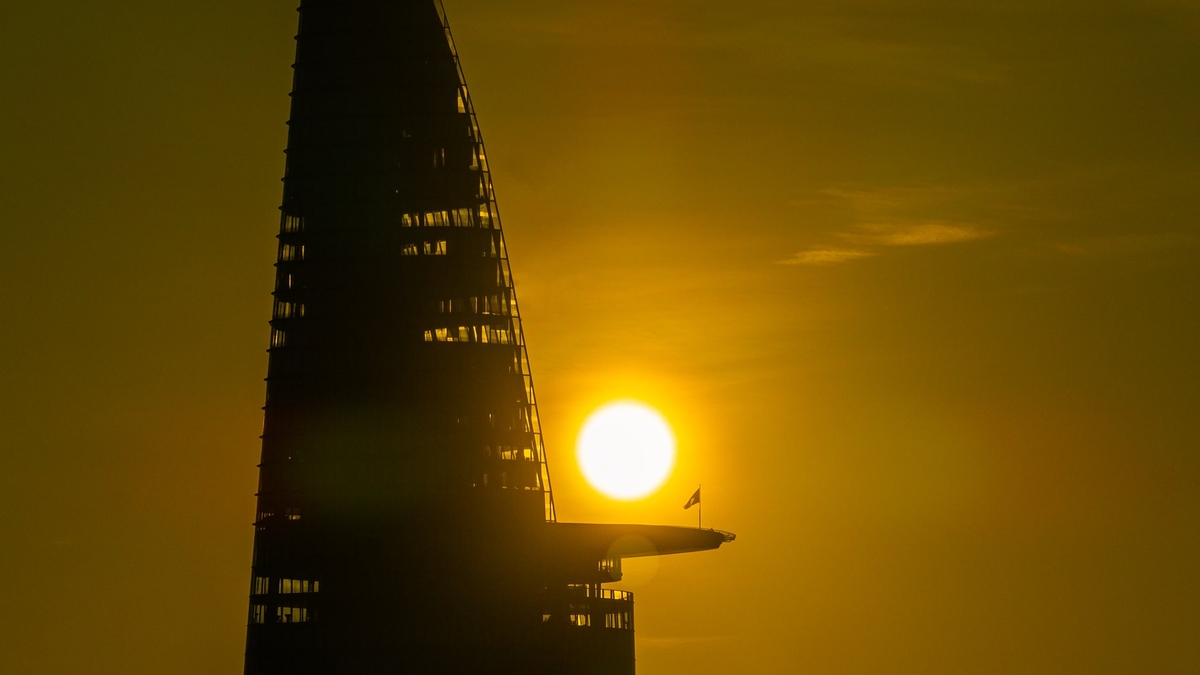
![[Photo] Buddha's Birthday 2025: Honoring the message of love, wisdom, and tolerance](https://vphoto.vietnam.vn/thumb/1200x675/vietnam/resource/IMAGE/2025/5/12/8cd2a70beb264374b41fc5d36add6c3d)




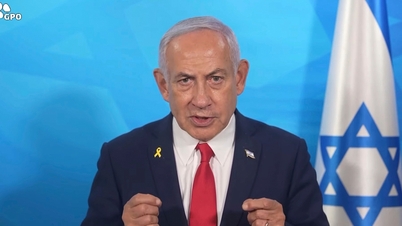
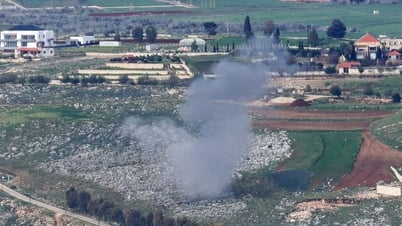






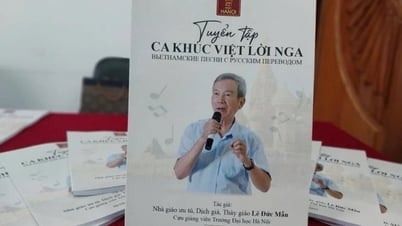
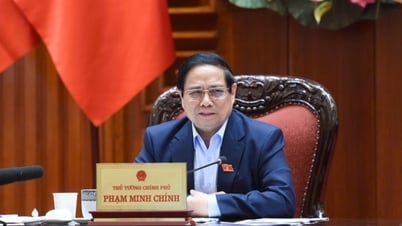




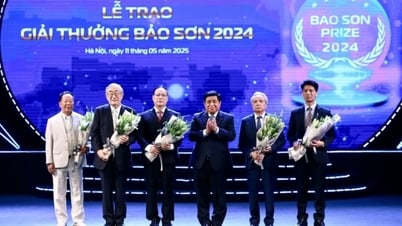





![[Photo] General Secretary To Lam meets and expresses gratitude to Vietnam's Belarusian friends](https://vphoto.vietnam.vn/thumb/1200x675/vietnam/resource/IMAGE/2025/5/11/c515ee2054c54a87aa8a7cb520f2fa6e)


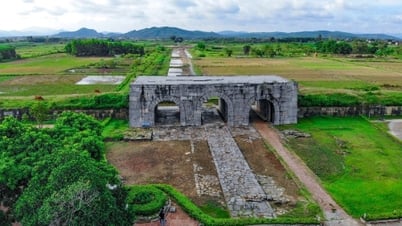

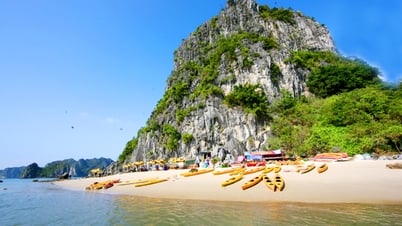








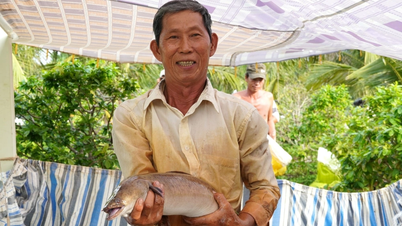
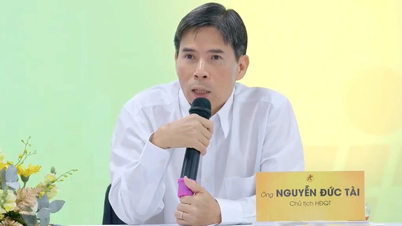



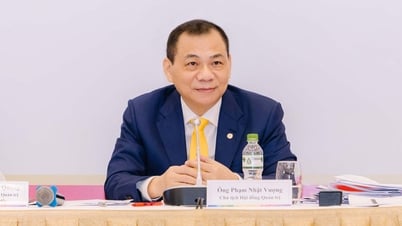

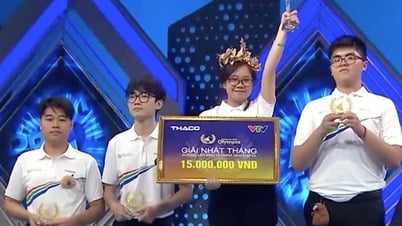

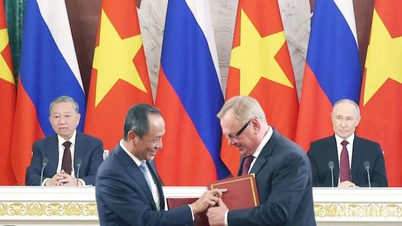



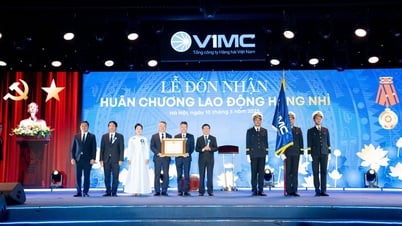
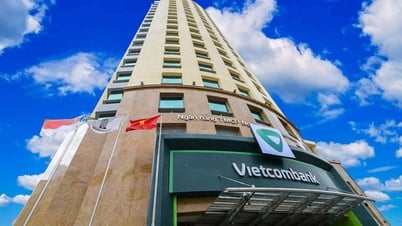

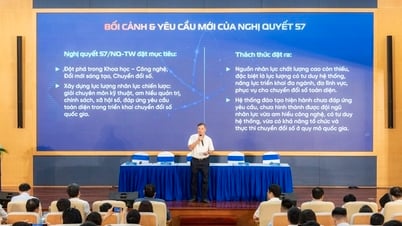
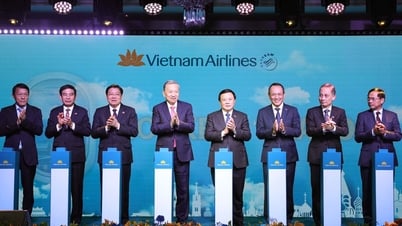


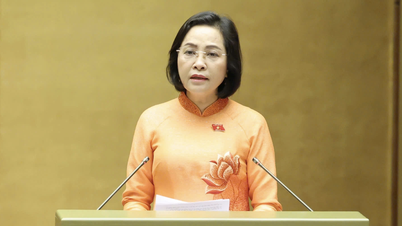


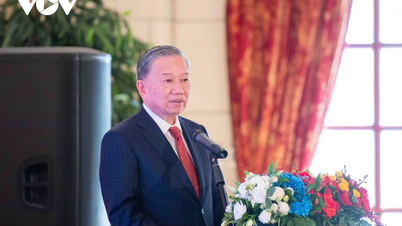

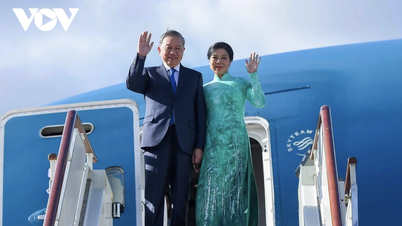
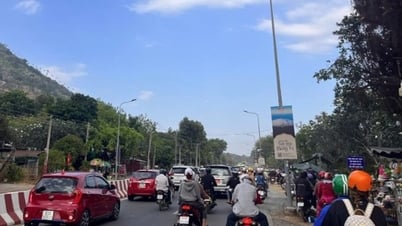

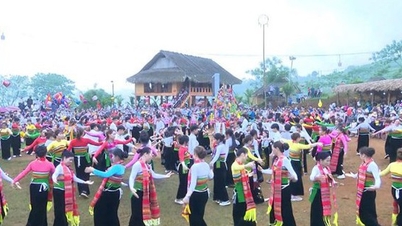
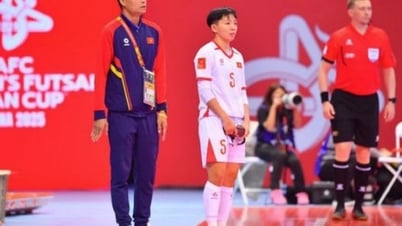

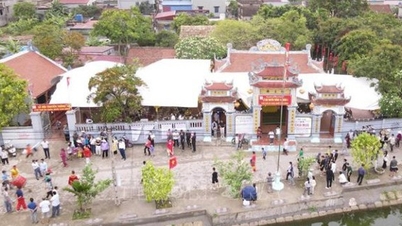



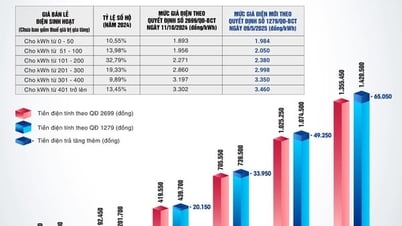





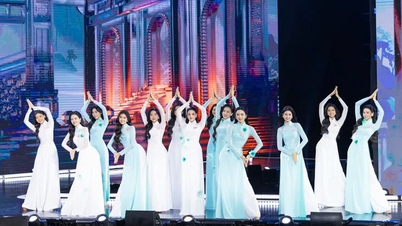

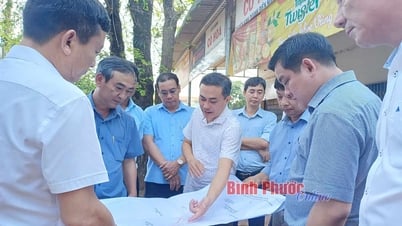











Comment (0)